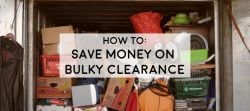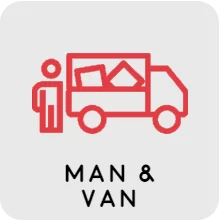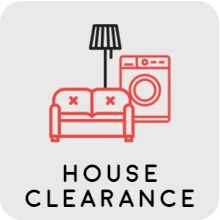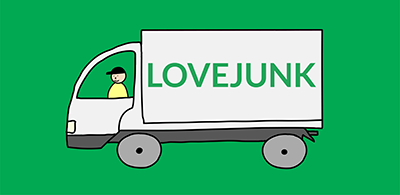Talking to the Chartered Institute of Waste Management
Taking waste to the next level
Jason Mohr, Managing Director at AnyJunk, offers his take on the current state of the waste industry and what he believes is required to ensure its progression with the Chartered Institute of Waste Management.
I love working in the waste sector. It’s packed full of opportunity; it’s going through a lot of changes, which makes it interesting and there’s scope to make a real difference environmentally. On top of all that, when I meet new people socially, there’s always something to talk about – because everyone has a view on “rubbish”!
However, irrespective of my love for the sector, a lot of people outside our industry view waste, and the organisations that operate in it, as pretty mediocre. Sure, there are some snazzy recycling facilities being built, but basically, waste is seen as an old-school industry that is still full of dodgy operators that look upon customer service as a part-time role for handling complaints. But I really don’t’ think it would take a lot to change this perception, and if the waste sector wants to achieve this change, to my mind there are three key areas it needs to improve: customer service; compliance and reporting; and overall brand image.
Customer is King
Is it just me or does the waste sector still seem to focus more on the movement and processing of waste than it does on understanding the needs of the customer? the fact that council “bin men” almost religious seem to leave the lids off residents’ bins has always bemused me. But there are plenty of other examples. How about the continued use of cubic yards (aren’t we metric?) to “help” customers decide what skip size to choose; calling a six or eight-yard skip a “builder’s skip”, despite them being two different sizes; the vast majority of the waste industry ignoring weight when they report to their clients on what waste they’ve taken; the huge inconsistency across the UK about what materials can be put into council recyclable collections; or try searching for customer service positions in the waste management sector on Google – it’s not exactly a major recruitment niche!

The increase in regulation means that more and more waste could find itself being fly-tipped and disposed of illegally
Coupled it, or maybe it’s because of, the above is the sector’s fixation with competing on price, rather than service. Take transfer stations, for example. Why don’t they try to compete on throughput instead of rates? I think a lot of waste carriers would be prepared to pay a little more per tonne if they could spend less time queuing for weighbridges. Or how about skip companies offering guaranteed callout times with money back or big discounts if they aren’t met?
The fact is customer service is good for business, and a sector can’t progress unless it evolves to meet the needs of its customers. I realise AnyJunk and rubbish clearance is just one very small part of the whole waste chain, but by doing things a little bit different, I’ve been amazed at how fast we’ve grown. Here’s just a few low cost, simple things that we do to improve our customer experience. We operate two-hour arrival windows (rather than am or pm), we offer 24/7 online booking, we make a courtesy call 30 minutes before a collection, we email out a waste transfer note (WTN) the moment we leave the site, and we send out follow-up emails to check customer satisfaction. Most recently, we added onboard weighing equipment to our vehicle fleet, to share with our customers the weight of the waste being cleared.
Compliance & Waste Audit Trails
There is quite a bit of regulation in waste and it’s growing. This regulation, coupled with the rising costs of disposal, means that a significant percentage of waste gets disposed of in an illegal way –transported by a carrier that is uninsured, overloaded or unlicensed, the waste is fly-tipped, or hazardous waste (like fluorescent tubes, CRTs, and paint) ends up being mixed in with general waste to avoid the need and cost of processing and treating it separately. With so much illegality going on and the clear duty of care placed on producers of waste to dispose of it properly, you’d think legitimate operators would make a big song and dance about basic documentary compliance. For example, providing a correctly completed waste transfer note for each collection. But there are still lots of licensed operators who don’t appear to.
Yes, I too would love the Government to clamp down more on illegal operators, but surely the best way encourage householders and businesses to avoid using them is for licensed waste companies to provide best practice documentation and emphasize its importance to their customers.
Waste audit trails is another area that could do with a bit of clarity. Why all the smoke and mirrors about waste composition and what happens with waste once it’s left site? I realise customers are increasingly demanding to know more, but isn’t providing them with a monthly breakdown of their waste based on the average material mix of the tip it goes to, a bit misleading? Equally, if a waste transfer station’s average landfill diversion is 95% and this is based on 95% of the waste it processes being inert waste and everything else goes to landfill, why not be clear about it?
At AnyJunk, we provide customers with weight and volume data of the waste we remove as part of their electronic WTN when we leave site. We also now offer our larger clients rolling reports reconciling each collection with the end disposal site – partly for peace of mind but also as an indication of what proportion of it avoids landfill – but if they need detailed material breakdown, the only way to do this is for us to record the material split as we load it, because once it gets to a tip it’s immediately mixed with all the other waste there – and no one is recording that analysis there.
A Rubbish Brand
Finally, isn’t it about time we made more of what this industry has to offer? Let’s face it, the rubbish business hasn’t exactly got a sexy image, but unlike so many other sectors, waste management (done properly) is extremely environmentally and socially responsible. Given these obvious social benefits and the growing awareness and commitment of people to supporting environmentally responsible behaviour, we should be out there singing the praises of what we do. That way the industry will be much better placed to attract the people and investment it needs to develop. But, whilst I often read stories about fly-tipping, why is it I don’t hear more goods news and positive stories about the waste sector? As I said, almost everyone I meet is interested in waste, but no one seems to be out there communicating clearly and positively on behalf of the waste industry – and if we want to make this sector aspirational, we need a lot better PR.
So what next?
As I said, one of the attractions for me of working in waste is the amount of change it’s going through. To date that change has been largely driven by external largely legislative and environmental factors. But maybe what this industry really needs is change from within – to develop into a genuinely professional and service led sector that people not only are interested to talk about, but actually enjoy using and aspire to work for.












